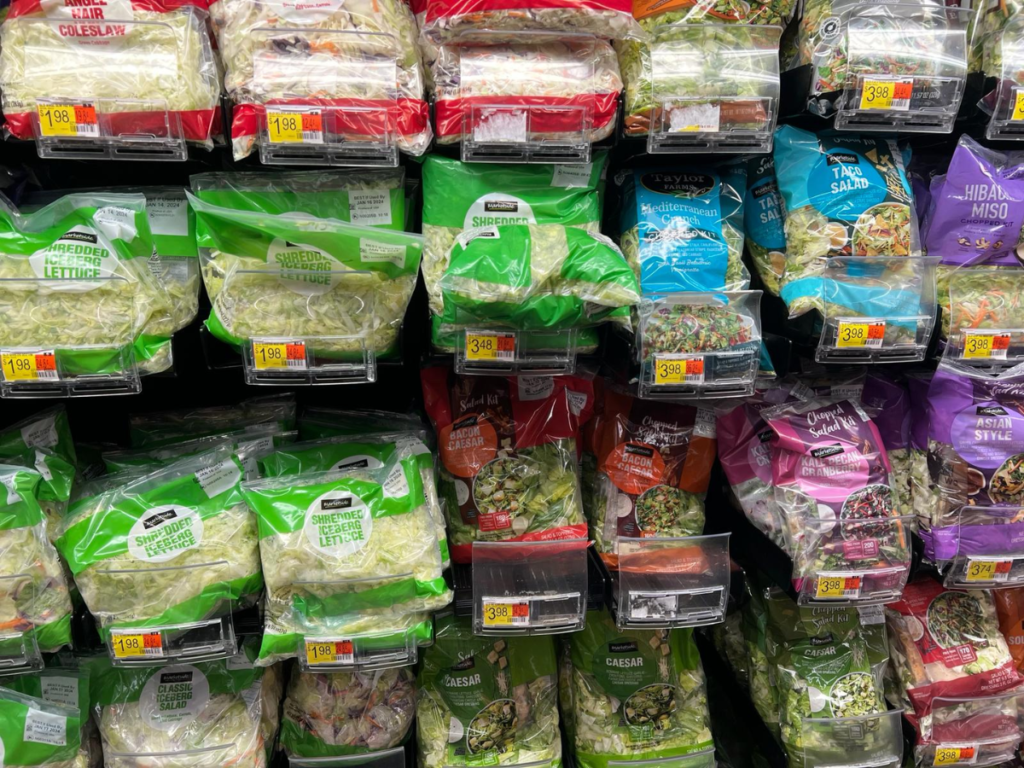Considering compostable bags as a packaging option for your veggies or fruits?
Well, this can be your key step towards sustainability.
Compostable produce bags are made from plant materials, meaning that they can break down easily. No wonder they are a great alternative to plastic bags at farmers’ markets and natural grocery food stores. Apart from being an eco-friendly option, these bags keep fruits and veggies fresh for longer.
This blog will guide you over the key aspects of compostable produce bags so that you can make an informed decision.
Understanding the Difference between Biodegradable and Compostable Bag
Compostable produce bags are made from plants and break down just like food waste. You can throw them in a composter when you’re done. They’re better than plastic bags and easy to switch to. You can start using them for your food scraps and then use them for other things. But, there are even better options we’ll talk about soon.
Biodegradable bags sound good, but they’re not all great. Compostable produce bags are a type of biodegradable bag, but others in this group aren’t as good for the environment. Regular biodegradable bags are still made from plastic. They can break down faster than normal plastic bags.
But Not All Compostable Bags will Break Down
Some bags labeled as compostable might need special conditions to break down properly. A home compost might not be enough. These bags might need special facilities where the compost gets hot enough to break them down.
Other bags are labeled as ‘home compostable.’ These should be okay to compost at home. But if the bag doesn’t have that label, it’s hard to know if it will break down in a home compost like you want.
Compostable produce bags, made from plant materials, are better for the environment compared to traditional plastic bags.
How Compostable Bags Help Reduce Plastic Pollution
Compostable bags play a crucial role in tackling plastic pollution, offering a sustainable alternative to harmful single-use plastics. Let’s explore how these bags contribute to protecting our environment:
Reduction in Land Pollution:
Traditional plastic bags can take hundreds of years to decompose, releasing harmful toxins into the environment as they break down. In contrast, compostable bags break down much faster, typically within three months to a year. This rapid decomposition process leaves behind a minimal carbon footprint and significantly reduces the amount of waste ending up in landfills.
Reduction in Soil and Water Pollution:
Ecosystems and wildlife are at risk from the harmful particles released by decomposing plastic bags, which can contaminate soil and water sources. Conversely, compostable bags break down without producing any hazardous byproducts. As they decompose, in reality, they release nutrients into the soil that improve its fertility and support a healthy biomass.
This not only benefits plant life but also helps safeguard arctic creatures by preventing pollution of their habitats.
Mitigating Plastic Pollution:
Compostable bags are typically made from renewable resources, such as plant-based materials, making them a sustainable choice. Their reusable nature encourages consumers to reduce their reliance on single-use plastics, thereby lowering overall plastic consumption and mitigating plastic pollution. Additionally, their easy degradability ensures that they do not persist in the environment as long as traditional plastics, further reducing the risk of pollution.
Reduce Carbon Footprints:
Compostable bags, from their creation to their eventual breakdown, play a vital role in decreasing our carbon footprint. Unlike plastic bags, which are derived from non-renewable fossil fuels, these bags are typically made from renewable plant-based fibers. This means that the resources used to produce them are replenishable, resulting in lower greenhouse gas emissions throughout their lifecycle.
Preserve Natural Resources:
By choosing eco-friendly bags, we contribute to the preservation of our precious natural resources. Traditional plastic bags require significant amounts of non-renewable resources, such as petroleum, for their production. In contrast, these bags are crafted from renewable and reusable materials, such as plant fibers. This not only reduces our dependence on finite resources but also helps protect ecosystems and biodiversity.
Empower The Future:
Whenever we choose an environmentally friendly bag, we’re not just buying something; we’re making a statement. By endorsing sustainable alternatives, we help to further the expanding trend of environmentally conscious living.
This strongly suggests to companies and decision-makers that sustainability is important. Furthermore, we’re investing in a cleaner, greener future for future generations by giving eco-friendly solutions a priority.
Your Guide to Choosing Compostable Produce Bags
Material:
When choosing compostable produce bags, pay attention to the materials used. Look for bags made from plant-based materials such as cornstarch, PLA (polylactic acid), or other renewable resources. These materials are biodegradable and break down more easily in composting systems, making them a sustainable choice.
Certifications:
Check for certifications that verify the composability of the bags. Look for labels such as “BPI Certified” or “ASTM D6400” to ensure that the bags meet industry standards for composability. These certifications indicate that the bags will break down into organic matter in a composting environment, leaving behind no harmful residues.
Durability:
While compostable bags are designed to break down quickly, they should still be sturdy enough to hold your produce without tearing or ripping. Look for bags with reinforced seams and adequate thickness to ensure they can withstand the weight of your fruits and vegetables.
Size:
Consider the size of the bags you need for your produce. Choose bags that are large enough to accommodate your groceries comfortably but not so oversized that they result in unnecessary waste. Some brands offer a variety of sizes to suit different needs, so opt for options that offer versatility.
Cost:
Though they might cost a little more than their plastic equivalents, compostable produce bags are more advantageous in the long run and have a smaller environmental impact.
Investing in sustainable solutions now can help cut waste and save the environment for coming generations.
Disposal:
Before purchasing compostable bags, consider how you will dispose of them. While these bags are designed to break down in composting systems, not all municipalities offer composting services. Many of your customers may not have access to composting facilities. So you can go for the bags certified as “home compostable” and can break down in any backyard compost pile.
The Bottom Line:
By embracing compostable bags, we can take significant steps towards reducing plastic pollution and safeguarding the health of our planet.
However, it’s important to remember that while compostable bags offer numerous environmental benefits, proper disposal methods are essential to maximize their impact.
Ensuring that these bags are disposed of in composting facilities or home compost bins will help complete the cycle of sustainability, allowing them to break down efficiently and contribute positively to the environment.





